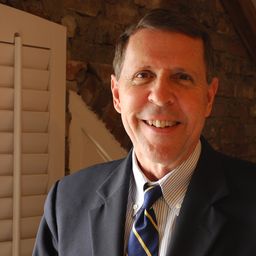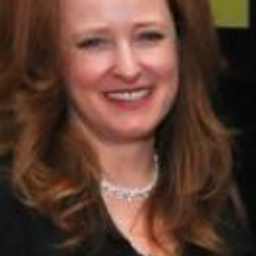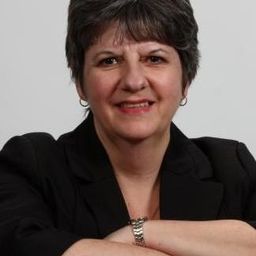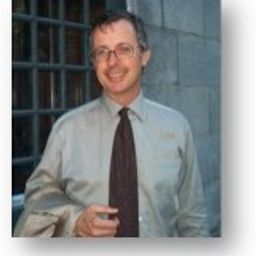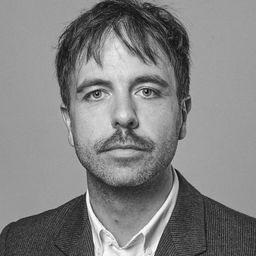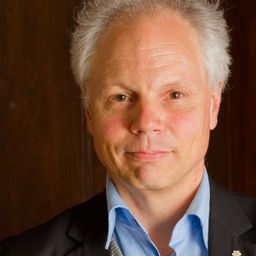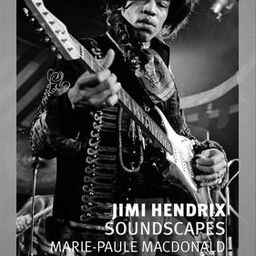
Marie-Paule Macdonald
Sessions auxquelles Marie-Paule Macdonald assiste
Vendredi 3 Juin, 2016
What does heritage change for tourism? | Le patrimoine, ça change quoi au tourisme? Ce débat veut interroger les relations entre le tourisme et le patrimoine et dépasser ainsi les idées reçues sur l'antagonisme entre le tourisme "corrupteur" et le patrimoine qui en serait la victime. Il s'agit donc de repenser le tourisme comme un réel acteur du patrimoine, de sa valorisation et de son appropriation, y compris par les populations locales. Cela présuppose, au p...
Qu’est-ce que le patrimoine change à Montréal? Qu’est-ce que Montréal change au patrimoine? Ce débat vise à mettre en discussion l'évolution et le devenir du patrimoine dans la métropole du Québec en interrogeant les motifs de l'attachement (ou de l'indifférence) de la société civile et des décideurs, mais aussi en questionnant les moyens dont ils disposent pour agir sur le patrimoine. Au-delà de la fameuse "pierre grise" et des matériaux expressifs de l'identité historique de Montré...
Working with archival documents and the current-day morphology of the Grey Nuns' site, Dr Cynthia Hammond, Dr Shauna Janssen, in collaboration with Dr Jill Didur, will curate a series of installations and performances that speak directly to the rich heritage of a specific urban landscape: the gardens of the Grey Nuns' Motherhouse, now part of the Concordia University downtown campus. Visitors will have the opportunity to explore the lost working gardens of the Grey Nuns. As with other such...
Samedi 4 Juin, 2016
What if we changed our views on heritage? And if heritage has already changed? While, on the global scene, states maintain their leading role in the mobilization of social and territorial histories, on the local scale, regions, neighbourhoods and parishes have changed. Citizens and communities too: they latch on to heritage to express an unprecedented range of belongings that no law seems to be able to take measures to contain, often to the discontent of...
Essentiellement construite sur des questions d’aménagement et d’environnement, urbain ou non, cette session est envisagée à la croisée de plusieurs thématiques: les «communautés imaginaires», les usages du patrimoine dans le tourisme, le rapport à l’expertise. Nous proposons de décrire et d’organiser un faisceau de situations et d’exemples, qui ressortissent à une même hypothèse sur le caractère social, la nature de bien collectif et le rôle de catalyseur des transformations joué par le pa...
The notion of heritage is closely linked to processes of change. In the Western context, the definition of heritage as "a contemporary product shaped from history" (Harvey 2010) highlights the extent to which our relationship with the past is being continually re-configured. However, there is a future dimension implied in this relationship that is often neglected; to paraphrase William Morris, the sense in which heritage testifies to the hopes and aspirations of those now passed away. Making ...
This session explores the different ways late modern states control and translate heritage, both their own and that of others. While modern governments have always played a role in the production and authorization of heritage, late modern states have unprecedented command over the heritage landscape. Coinciding with the postwar economic boom, globalization, and most recently neoliberalism, the state has come to dominate the most vital aspects of heritage, ranging from research (heritage produ...
Dimanche 5 Juin, 2016
La conservation des quartiers anciens ne se réalise probablement jamais sans être accompagnée de tensions sociales de différentes sortes. Si, dans les années 1960 et 1970, de nombreux projets ont pu être motivés par la résistance citoyenne aux formes les plus néfastes de la rénovation urbaine, aujourd’hui, on a l’impression que la volonté de conserver le patrimoine urbain aboutit presque systématiquement à la «gentrification – un terme qui ne renvoie pas uniquement à l’embourgeoisement d’un...
With regard to the main question of the 3rd ACHS Biennial Conference, "What does heritage change?" the convenors of this session propose ethnographic evidence of contradictory spheres of value by showing how encounters between official rhetorics of heritage and borderline/illegal ethics and objects produce social change. In particular, they explore, through an inclusive approach, the social and political constructions of heritage by questioning the aesthetic dichotomies of beauty/ugliness, pr...
Directed by Tom Fassaert and presented by Marc Jacobs. ___ Doel, a Belgian village near the Dutch border, is disappearing quickly and deliberately. Not because of the four old nuclear reactors on its territory, but because the Flemish government decided that the village might block projects for new docks for the Antwerp harbour, plans developed since the 1960s. In the 21st century this process of officially encouraged depopulation is coming to an end: 2500 inhabitants i...
Lundi 6 Juin, 2016
Heritage processes vary according to cultural, national, geographical and historical contexts. Since the late 1980s, the phenomenon of contestation in heritage has been increasingly recognized. However, there is still little detailed and situated knowledge about the range of actors present in contestations, the variety of strategies they pursue, the reasoning behind their choices, the networks they develop, and how, from all this, heritage has been and is constructed. More often than not, con...
As Canada shifts from a resource-based economy to a knowledge-based economy, small communities that were established to service the primary sector are faced with a complex and unique set of challenges. They are communities built on a culture of hard work, resourcefulness, and creativity; their residents are now tasked with developing strategies to deal with a lack of employment, depopulation and resettlement. Small is premised on the notion that leveraging the rich cultur...
De l’ère du Maire Drapeau et de ses interventions autoritaires sur le tissu urbain de Montréal dans les années 1960 et 1970, à l’instauration d’une démocratie municipale dans les années 1980 sous l’administration Doré, la population est de plus en plus sollicitée dans les grands débats concernant la transformation du patrimoine urbain de Montréal (Drouin 2005). Notons l’instauration en 2002 de l’Office de consultation publique de Montréal, tribune où les citoyens peuvent donner leurs avis ...
Le patrimoine fait aujourd’hui l’objet d’attentions autant que d’agressions et de destructions. Cela peut s’expliquer par les difficultés de son identification ou de sa conservation. Cela peut plus profondément s’expliquer parce que, dès le départ, il célébre un événement ou conserve une mémoire qui peut être ou devenir une source de dissenssions et de conflits politiques. Enfin, sa reconnaissance suscite des gains économiques pour les uns mais des pertes pour les autres. Mais peut-être...
Directed by Christine Walley and Chris Boebel Presented by Michelle Stefano When the steel mills began closing on Chicago's Southeast Side, residents could feel the American Dream slipping away. Decades later, the loss of the steel industry has left permanent scars. The documentary film, Exit Zero: An Industrial Family Story, is named for the highway exit number for Chicago’s old steel mill neighbourhoods and captures the feeling of a region passed over. In poignant and some...
Mardi 7 Juin, 2016
Si la ville moderne occidentale se transforme, sous l'action des aménageurs, en écho à des utopies, des programmes de développement et des intérêts économiques, on néglige trop souvent l'action quotidienne d'habitants et d'acteurs sociaux qui s'approprient les lieux et contribuent à les transformer. Dans cette mutation de la ville, le patrimoine se trouve à la croisée d'enjeux économiques et sociaux singuliers: d'une part il est convoqué par les aménageurs et les acteurs de la gentrification ...
L’art contemporain, lorsqu’il est en relation avec le patrimoine culturel, que ce dernier soit bâti ou qu’il mobilise d’autres matériaux ou supports, tend à reconfigurer les rapports de la société à ses patrimoines et à son histoire. Il est ainsi à même d’ajouter, de modifier, de détourner ou même de transformer les valeurs historiennes ou esthétiques communément associées au patrimoine culturel d’une nation, d’une région ou d’un groupe social ou ethnique; y compris d’ailleurs en ce qui conce...
The 1970s witnessed a flourishing of living experiments in space, place and community sharing broad ambitions to bring about transformed human social and interpersonal conditions, to re-envision relationships between people and the environment and ecology of their habitats, and to reject a growing mainstream vision of people as passive consumers in favour of a role as creative and adventurous agents of their own destinies. While some expressions of these experiments were non-spatial or intend...

